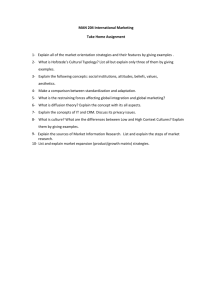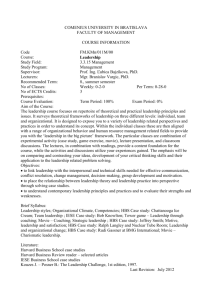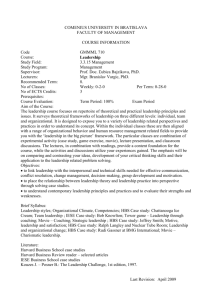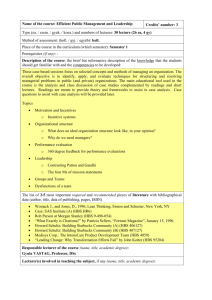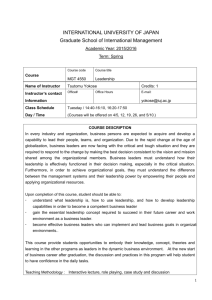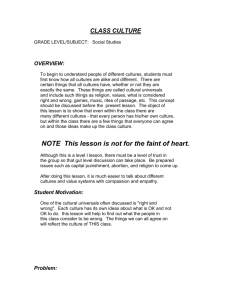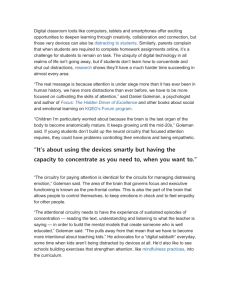Selected Readings and References on Leadership
advertisement
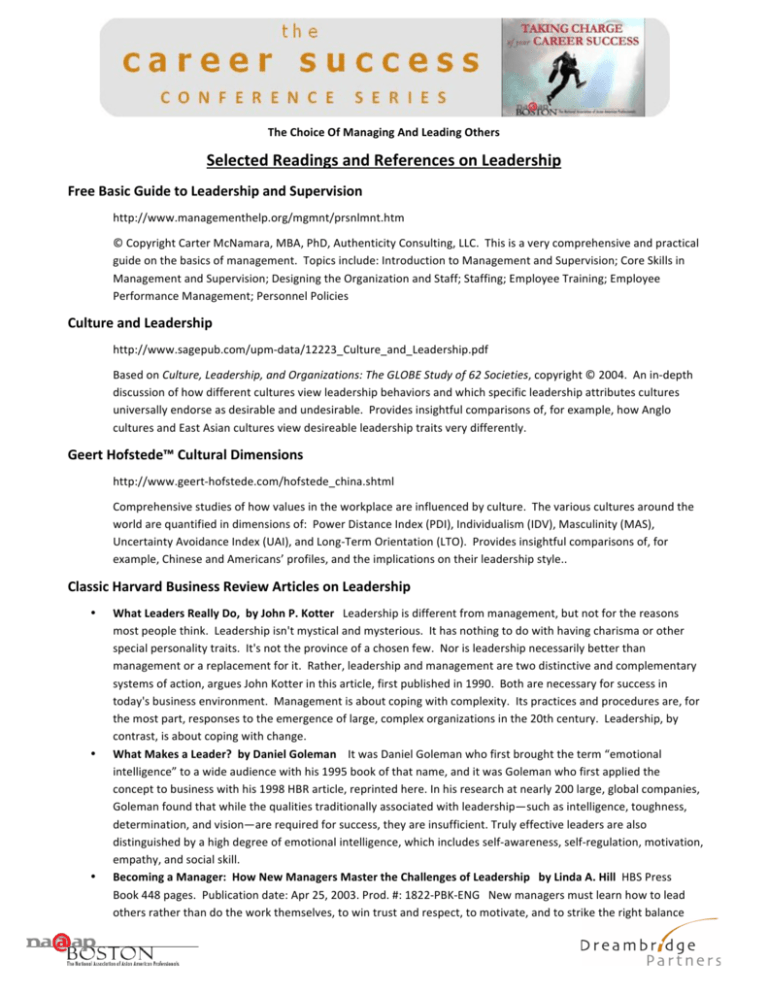
The Choice Of Managing And Leading Others Selected Readings and References on Leadership Free Basic Guide to Leadership and Supervision http://www.managementhelp.org/mgmnt/prsnlmnt.htm © Copyright Carter McNamara, MBA, PhD, Authenticity Consulting, LLC. This is a very comprehensive and practical guide on the basics of management. Topics include: Introduction to Management and Supervision; Core Skills in Management and Supervision; Designing the Organization and Staff; Staffing; Employee Training; Employee Performance Management; Personnel Policies Culture and Leadership http://www.sagepub.com/upm-­‐data/12223_Culture_and_Leadership.pdf Based on Culture, Leadership, and Organizations: The GLOBE Study of 62 Societies, copyright © 2004. An in-­‐depth discussion of how different cultures view leadership behaviors and which specific leadership attributes cultures universally endorse as desirable and undesirable. Provides insightful comparisons of, for example, how Anglo cultures and East Asian cultures view desireable leadership traits very differently. Geert Hofstede™ Cultural Dimensions http://www.geert-­‐hofstede.com/hofstede_china.shtml Comprehensive studies of how values in the workplace are influenced by culture. The various cultures around the world are quantified in dimensions of: Power Distance Index (PDI), Individualism (IDV), Masculinity (MAS), Uncertainty Avoidance Index (UAI), and Long-­‐Term Orientation (LTO). Provides insightful comparisons of, for example, Chinese and Americans’ profiles, and the implications on their leadership style.. Classic Harvard Business Review Articles on Leadership • • • What Leaders Really Do, by John P. Kotter Leadership is different from management, but not for the reasons most people think. Leadership isn't mystical and mysterious. It has nothing to do with having charisma or other special personality traits. It's not the province of a chosen few. Nor is leadership necessarily better than management or a replacement for it. Rather, leadership and management are two distinctive and complementary systems of action, argues John Kotter in this article, first published in 1990. Both are necessary for success in today's business environment. Management is about coping with complexity. Its practices and procedures are, for the most part, responses to the emergence of large, complex organizations in the 20th century. Leadership, by contrast, is about coping with change. What Makes a Leader? by Daniel Goleman It was Daniel Goleman who first brought the term “emotional intelligence” to a wide audience with his 1995 book of that name, and it was Goleman who first applied the concept to business with his 1998 HBR article, reprinted here. In his research at nearly 200 large, global companies, Goleman found that while the qualities traditionally associated with leadership—such as intelligence, toughness, determination, and vision—are required for success, they are insufficient. Truly effective leaders are also distinguished by a high degree of emotional intelligence, which includes self-­‐awareness, self-­‐regulation, motivation, empathy, and social skill. Becoming a Manager: How New Managers Master the Challenges of Leadership by Linda A. Hill HBS Press Book 448 pages. Publication date: Apr 25, 2003. Prod. #: 1822-­‐PBK-­‐ENG New managers must learn how to lead others rather than do the work themselves, to win trust and respect, to motivate, and to strike the right balance between delegation and control. It is a transition many fail to make. This book traces the experiences of nineteen new managers over the course of their first year in a managerial capacity. Reveals the complexity of the transition and analyzes the expectations of the managers, their subordinates, and their superiors. Resources on the Web HBS (Harvard Business School) Working Knowledge http://hbswk.hbs.edu/ A web forum for innovation in business practice, offering readers a first look at cutting-­‐edge thinking from HBS faculty. Browse the section on Leadership & Management for timely articles. The Center for Creative Leadership (CCL®) http://www.ccl.org/leadership/index.aspx A web resource with extensive readings, articles and tips on leadership. The Center for Creative Leadership (CCL®) offers an exclusive focus on leadership education and research and unparalleled expertise in solving the leadership challenges of individuals and organizations everywhere. What is creative leadership? It's the capacity to think and act beyond the boundaries that limit our effectiveness. Every leader and organization faces obstacles that are difficult to surmount -­‐ from corporate executives confronting the complex global marketplace to educators trying to lift student achievement to nonprofit groups and government agencies addressing critical social issues with tight budgets.
